So you have been working as an early childhood educator in a long day care or centre based early learning environment and now you are thinking about moving to setting up a family day care in your home instead. But what does that really entail and how do you know it is the right move for you?
Setting up and running a family day care service from your home is very different to working in a centre based environment where you are surrounded by other educators and large groups of children every day. I've heard family day care described by other educators as an easier work role and option but I couldn't disagree more and it's important when thinking about changing your career path to consider all factors and what this might mean for you before you take that leap!
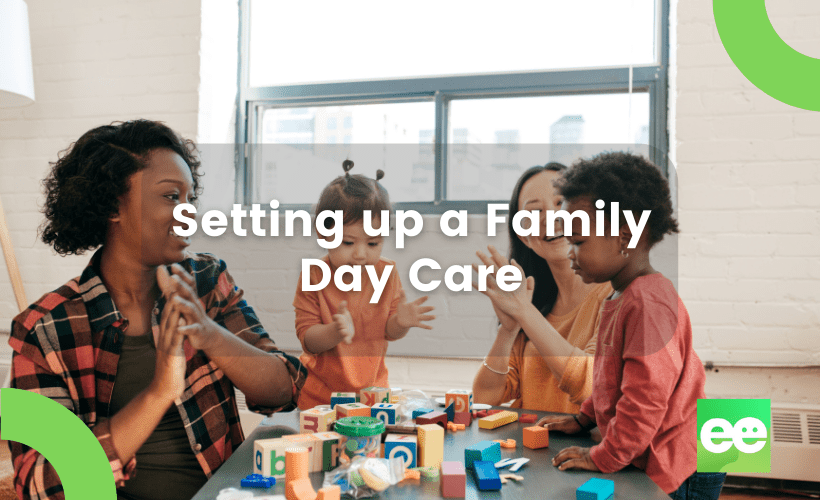
Both roles have their own challenges, rewards and requirements-some similar, some different. So how do you know which role is better for you and what steps you need to consider before you begin the transition from centre based educator to home based educator? Let's break down some of the essentials that might help you make a well informed decision. One that works for you, your family, your philosophy and your bank balance.
I've worked on both sides of the fence so the suggestions in this article are based on my own personal experience as an Australian early childhood educator – depending on where you live in the world you might still have to do a little extra research into specific requirements for your area but this should give you a headstart!
The Differences to Consider When Setting up a Family Day Care .
Although there are many familiar processes, regulations and paperwork across Family (Home) Day Care and Centre based care there are a number of differences you should consider and seek further clarification on before making the important decision to change your role.
- Family Day Care Educators must hold early childhood qualifications (minimum Certificate 3 in Australia). This is definitely not a babysitting role or just something you take on so you can stay at home with your own children. This is a profession – just as working in a centre early learning environment is!
- You become a sole operator and therefore responsible for the day to day running and administration of your service.
- You will need to register with a coordination unit, family day care scheme or council appropriate for your area for government subsidy data entry and remuneration and also the regular support of qualified early childhood coordinators. The services and level of support offered across coordination units can differ greatly so it is in your best interests to seek out feedback from current educators and ask questions of the scheme before you register with them. Read this blog post for some ideas on questions to consider when choosing a family day care scheme(you can also go out on your own but this does have consequences for the level of benefits families receive if using your service – it can be a good option though if you research thoroughly first and take into account the level of support you will require and your personal strengths).
- Your home and outdoor areas become your care environment. You can specify which areas you will be using and which will be out of care use but keep in mind that if you have your own children keep in mind the FDC children will not be allowed in their spaces. You may also need to install fencing with child safety gates and latches to meet regulations.
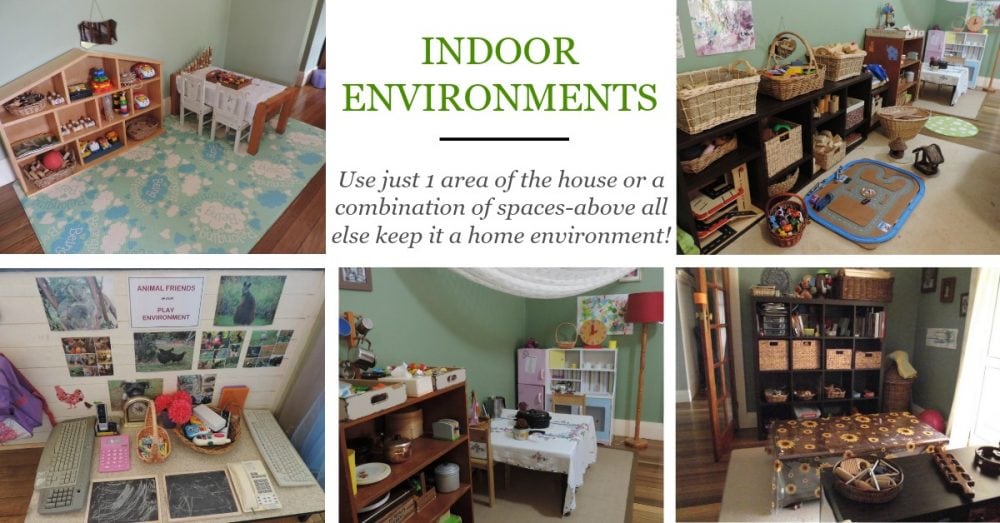
- In most instances you will be responsible for invoicing parents and the collection of fees – some schemes do this for educators but they are in the minority.
- You will likely need to add some safety modifications to your furniture and home environment including baby gates, childproof locks, safety glass/film on windows of a certain age and height, moving around heavy furniture, securing bookshelves, cabinaets and TV's so they can't topple over, adding fire extinguishers and regularly having them checked etc. See this post for a look behind the scenes when I was setting up my own FDC service.
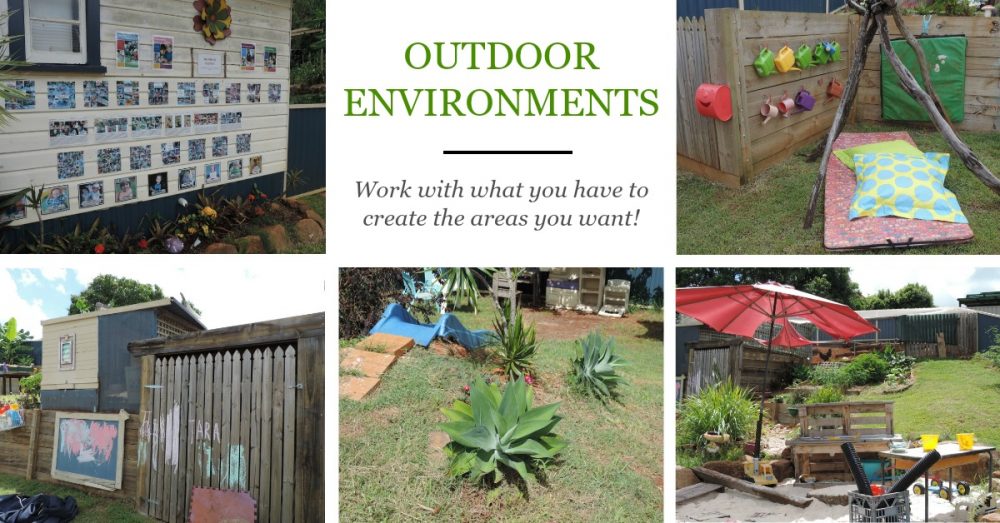
As with centre based educators you still need to meet the steps of a documentation and planning cycle – but the difference is you are the only one doing the paperwork which has it's pros but also it's cons!
- You will need to display posters, contact numbers, evacuation plans and other forms required as per regulations in your care area (which is usually your home wall!).
- If you provide food you are responsible for ensuring you have completed the appropriate food handling certificate and can adhere to the regulations.
- You need to purchase your own craft materials, resources, furniture etc – but you can also claim a % of this on your tax – along with many other deductions when using your own home. It also gives you the opportunity to only use the materials and resources you want to!
- You will need to register as a sole operator (in Australia)and obtain an ABN (Australian Business Number).
- You will need to develop a programming and parent communication system that works effectively for you as time management is essential when working on your own.
- It can be isolating – but you also miss out on the common large team dramas!
- You can still go out on excursions but you are responsible for completing all risk management forms, having your child car restraints safety checked and ensuring you are still available for usual drop off and pick up times.
- You set your working hours – including if you choose to work weekends or outside of core hours.
- You choose the days you work.
- If you have young children they will be able to stay in their own home environment – but keep in mind this isn't the only reason you should consider family day care as it can be tough to look after your own child's needs while also juggling work and other children's needs each day!
- Your children are counted in your ratio so if like me you have 2 children that only leaves 2 additional paid places each day (because no you don't get paid to look after your own child….if only!!)
- Usually you will find yourself responsible for the promotion and marketing of your service to keep spaces full. Read this blog post for more information in this area.
- Depending on your scheme level of support you might also be responsible for initial parent interviews, enrolment forms and helping them meet government paperwork requirements. This blog post gives you some tips for parent interviews and securing enrolments.

The Challenges of Setting Up A Family Day Care
- Storage of resources and equipment can begin to take over your household if you have not thought ahead and organised spaces for storage.
- Your own family can find it difficult to get used to having their spaces modified for safety, not being able to leave certain things out, not being able to do renovation or repair work whenever they want, sharing toys and their Mum or Dad, always having other children in the house early or late, having family day care toys and paperwork everywhere, not being able to smoke, not being able to sleep during the day (to noisy!) if working night shifts and general privacy expectations can become an issue. Household members will also be required to get the appropriate Working with Children Checks – not just you!
- Dealing with difficult parent or carer situations or conversations can certainly be a challenge and I encourage all educators considering family day care to brush up on those educator assertiveness skills!
- Following up on late fees – you are not a big business so this is your direct income and when fees are late or get behind it means you might have difficulty meeting your own budget obligations. Again – this is where assertiveness and good business admin comes into play though! Chasing up debts can be a stressful business.
- Meeting the dual needs of paperwork requirements for running a business from home on your own as well as the documentation paperwork and planning expectations (pretty much the same as required in a centre by the way – not easier!)
- Putting systems in place to pay yoursself superannuation as well as allocating tax instalments to use at tax time.
- Keeping records of everything can be overwhelming at times but you will need to do this to ensure you don't end up with a huge tax bill end of financial year.
- Relying on your coordination unit to deposit the government subsidies consistently and also the parents to pay their gap fee on time.
- Not getting paid for any holidays or sick days you take – and the feeling of letting down your families!
- Family Day Care enables children of different ages to come together in the one group and this can have positives and negatives for both you as educator and the children. You will be working with multi age groups each day.
- You will need to promote and market your service to ensure you build up your professional reputation and don't have long periods of vacancies which can cause financial strain and uncertainty.
- You are the cleaner…and trust me, you will be cleaning a lot!
- You are the gardener – your outdoor spaces and entry areas need to be kept in good condition to reflect the professionalism of your service.
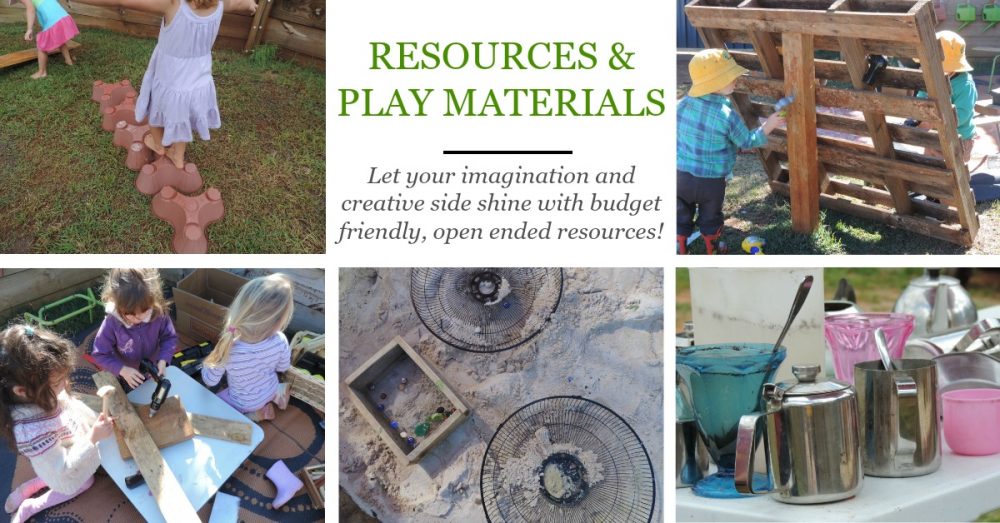
The Positives
- You choose the days and hours you work.
- For all intents and purposes you are your own boss – but do still need to meet scheme, framework and regulation requirements – just like those educators in a centre do.
- You can take holidays when you choose (with appropriate notification of course!)
- You can choose which families you accept to enrol to your service or alternatively give notice to because it's just not working for your service and group dynamic.
- If you have your own young children they can stay home in their own environment with you (I've added this point to the challenges section as well because it is sort of a double edged sword at times working with your own children always demanding your undivided attention!).
- You can write and share a program of activities and ideas that meet your personal early childhood philosophy and explore principles and practices you might have wanted to delve into for years!
- You can set up your activities, experiences and environments the way you want too to meet the criteria of your own professional values and philosophy – you aren't bound by the principles or directives of a centre management.
- Due to lower group numbers each day (4 children under school age) you will have more opportunity to interact and engage with the children, follow their interests and offer them a welcoming and secure home environment – this often leads to quicker settling in periods for new children as the environment is less overwhelming and the educator remains a constant in their life.
- There is no commute to and from work!
- You usually have more flexibility to use the planning forms, templates and systems that work best for you although you may still be asked by certain schemes to use a set format.

- You don't have to own your own home (although in most cases you will need permission from the landlord if renting).
- As I mentioned above in the challenges – a Family Day Care environment enables children of different ages to come together as a group and this can offer positives and negatives for both you as educator and the children. Consider how you will work effectively with a multi age group each day if you are used to working with certain age groups only.
- You can choose the ages you want to take on – keep in mind that Family Day care is often more frequently used by parents and carers with children aged under 3 but you might want to set limits like only 1 child under 1 year at any one time.
- Because you are choosing your enrolments you can stipulate whether you will accept 1 day a week enrolments or whether you prefer a minimum of 2 days. (Children attending only 1 day of care often find it more difficult to settle in and get used to the care environment and other children)
- You will develop more engaged and purposeful relationships with the children in your care – you can take the time to really follow through on their individual learning journeys and plan effectively for their needs.
- You are usually programming for and keeping records on less children in a day to day capacity.
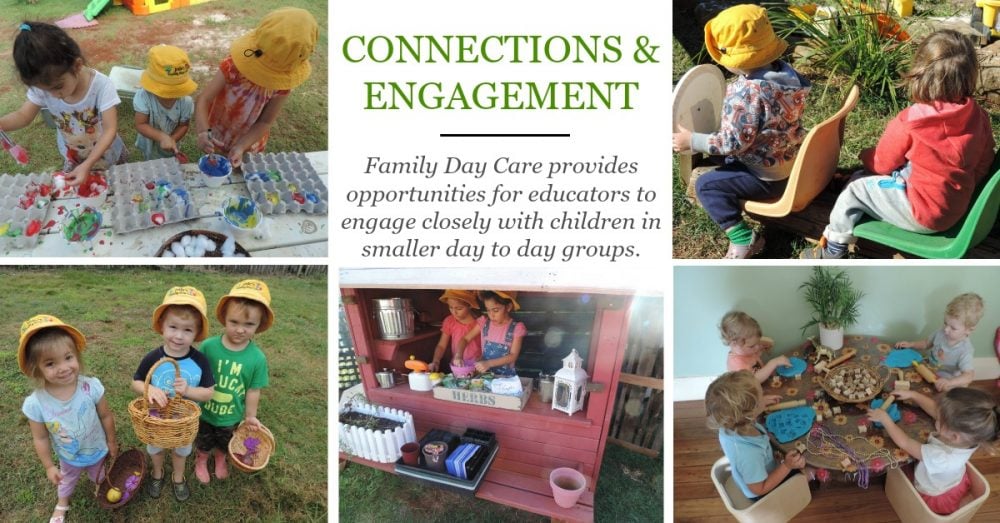
The Income and Expenses Question
I am often asked what Family Day Care educators earn and if it would be the same as their weekly wage from a centre based early learning environment. This really is quite an impossible question to answer as there are so many variables to consider first.
- Educators in Australia can set their own hourly rates in most instances but often coordination units will have a cap you cannot go over.
- There are different rates for core and out of core hours.
- You can set a higher rate to work on public holidays.
- The majority of educators (in my experience talking with educators) seem to charge hourly rates (per child) between $7 and $10. But I have seen hourly rates as low as $4.50 (which I do not recommend – value your work!) and up to $14. It really depends on the competition in your local area, vacancy rates, the services and environment you offer, your expertise and experience and what makes running this business a viable option for you. You will also want to ensure you set a minimum number of hours you will take enrolments for even if they are not wanting to use that entire time.
- You do have the potential to earn much more than you would working in a centre but this will again depend on the number of hours and days you work, if you take on additional school age children (up to 3 if you already have 4 under 5) for before and after school care or vacation care,if you work on weekends or outside core hours, if you don't need to do to much ongoing maintenance, if you provide food, nappies and other essentials as part of your service and of course your hourly rate.
- You will need to budget ahead for educator holiday periods, sick days and those times when you have vacancies and are not getting paid. There is no provision for sick pay or annual leave as you are a sole trader.
- You have to keep income records for your business and do the invoicing and reconciliation as mentioned previously.
- You will usually need to pay a certain amount out of your income each week for a scheme administration levy – this can vary greatly and I encourage educators to research the amount of admin and support they receive for this fee as it is coming out of your hard earned money!!
Real Tips from Real Family Day Care Educators
If you have already decided you want to make the move to Family (Home) Daycare then don't stop reading!
I'm sharing some of the tips below that I have seen posted in my Facebook group and other social media channels from current or past family day care educators to those who are new to setting up their own home daycare service.
These tips and suggestions are pure gold and so helpful to educators beginning their family day care journey!
- Start off slowly with numbers – allow the children to settle and get used to them before filling up.
- Find a good accountant who understands family day care and the unique tax benefits and deductions available.
- Be professional and keep business and pleasure separate because it can lead to difficult moments down the track when your ‘friend' is behind with their fees or continually picks up their child late!
- Be strict with parents paying fees.It is your income and you have bills too. Ensure you have a process in place for dealing with late fee payments and excuses.
- Think about ways you might be able to connect with other adults and educators to keep those inevitable feelings of isolation at bay. It can be fantastic working from home all day but it can also be confronting if you are used to having others to bounce ideas off, chat to or help you on those rough days!
- Choose your families based on shared values and expectations with regards to the care of their child.
- Don't deviate from your set hours – (I second that – be firm and ensure you have clear hours of operation – you are a business not doing this just for the joy of it!)
- Be really picky with who you take on. Parents get to interview educators and say yay or nay and educators should be interviewing families to make sure they are the right fit.
- Get yourself into a small group of educators (maybe 4 or 5) and get together 1 or 2 times a week as well as phone contact. They will be your lifeline when the isolation feeling comes on. Go to playgroups, playgrounds, outings as a group.
- Keep receipts for everything!
- If you interview a family and they say yes but then call and say no – look on the bright side rather than feeling a failure! It wasn't meant to be… sometimes families will say yes to lots of educators and use it as a back up until they are offered the place they wanted first.
- Start as you mean to go on. Be assertive, have clear guidelines and policies and stick to them. If you aren't consistent and professional it will only make things harder down the track.
- Be flexible but not a door mat.
- Don't stress the small stuff.
- Talk to your family and be really clear about how it might affect them.
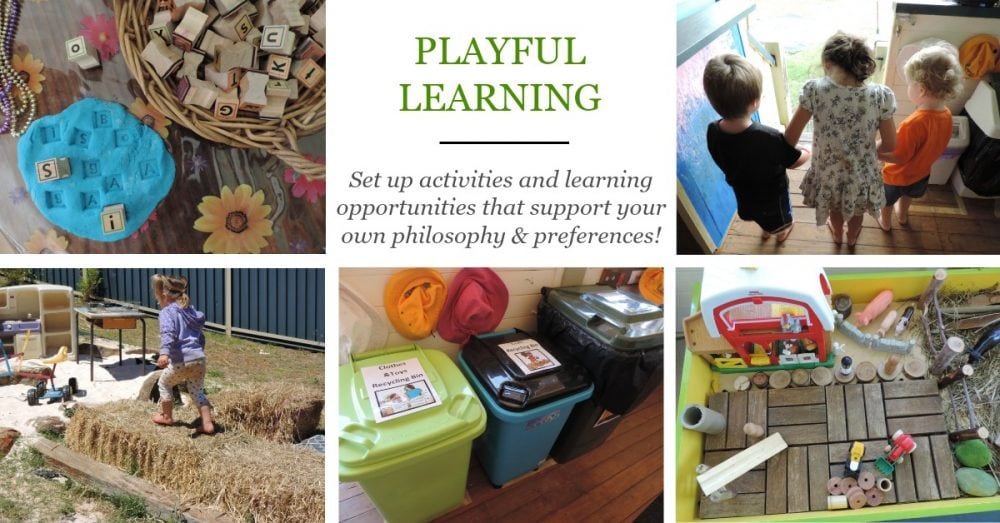
There is so much more I could write but I can't fit everything into just one blog post -you are probably already snoring but I do hope you can take away some of the information to help you make an informed decision about whether it's the right move for you to transition to or set up a family day care.
I absolutely love the benefits setting up a Family Day Care provides for both educators and children and would never go back to working in a centre (unless it was exceptional and met all my own professional expectations and philosophies!) but everyone is different and although it is a rewarding role it is certainly not easier – there are many challenges and you need to take on the running a business aspect as well as the usual early childhood requirements and not everyone can handle this extra workload.
But don't forget to explore the benefits I mentioned above too – there are many more but for me being my own boss, setting up the experiences and environment the way I want to and having the opportunity to form closer relationships with the children are my main reasons. What might yours be?
Working in early learning centres also has many pros and sometimes I think educators get caught up in the ‘grass is greener on the other side' thinking and forget to really research the role they want to choose so I applaud you for reading this article through to the end!
Are you feeling ready to take the leap into something new?
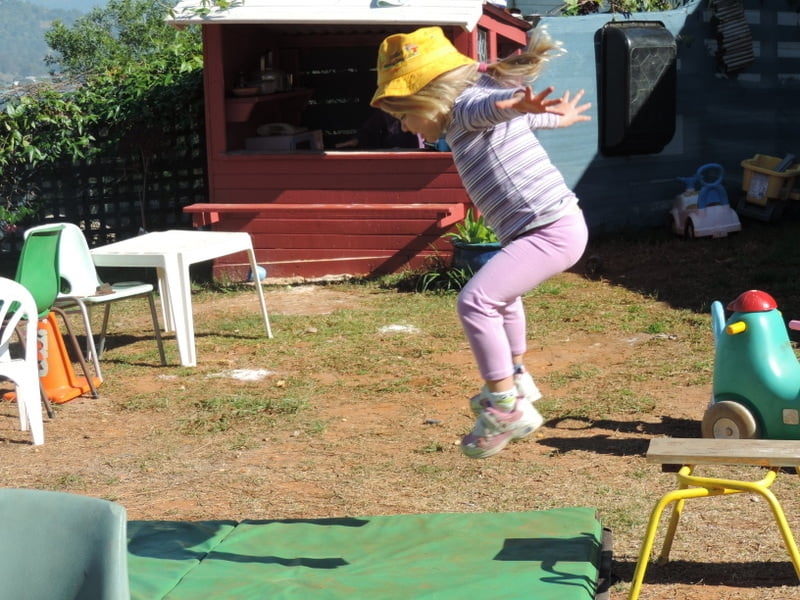
Do you run a home daycare or family day care service? Is there a challenge, difference or positive I have missed or perhaps something specific to your part of the world that you would like to share? Leave it in the comments below!

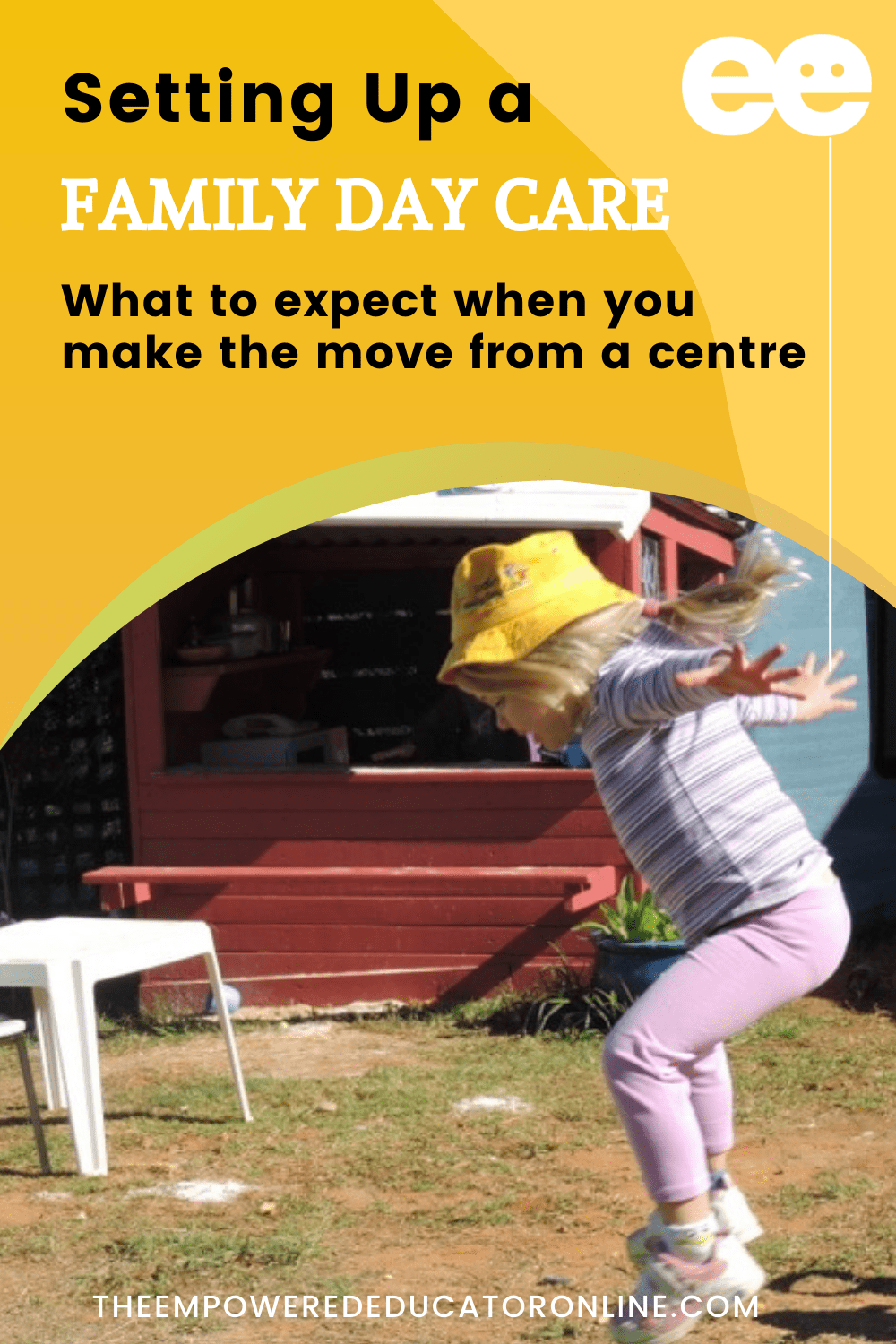
A Little About Me

Jodie Clarke is an early childhood professional supporting educators who want and need to stay passionate about the work they do! She has 30 years hands-on experience in the early childhood and human services sectors across many different roles.
Jodie is mum to 3 in Australia and has already helped thousands of educators with their work through her popular blog posts, activity ideas, online training and e-books.
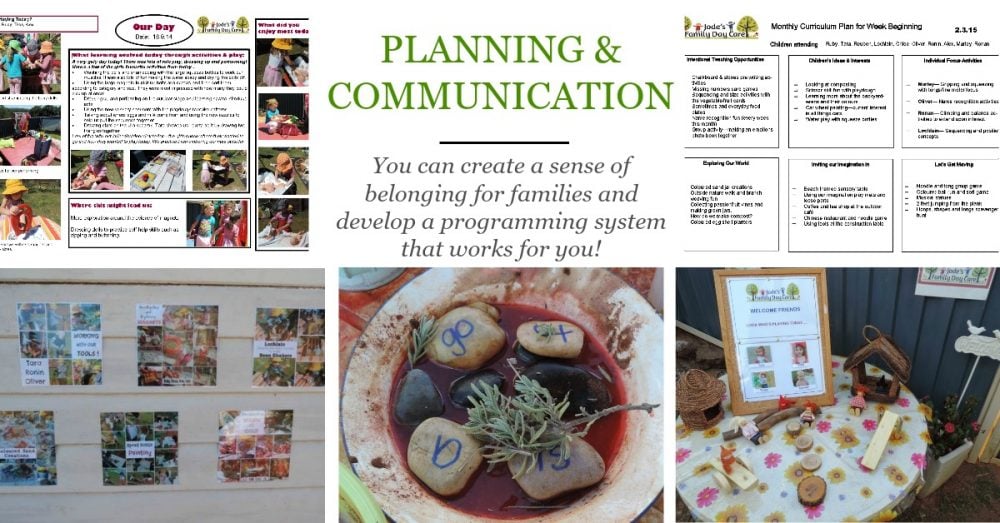

Really thanks for sharing this useful post !! this post is very informative for me and i have got very good information about day care.
This post was so useful and well written, it’s nice to see the pros and cons behind your story.
Thank you for the information and encouraging me to peruse my dreams.
Well done Jodie. Well said.
Read them all and very accurate.
Doing day care since 1995 when my youngest was 2. She is Registered Nurse now . I’m still in business , still full and i have parents waiting for vacancy.
The situation is very different in Ontario, Canada, where 75% of children are cared for by unlicensed, independent home daycare providers like myself. The only regulations we are subject to are our numbers (3 children under 2, max of 5 children total) and some safety regulations. Each provider has complete freedom in her rates and how she organizes her program. For example, the contract I create with my families specifies that I get 10 paid statutory holidays plus 4 paid sick days plus three weeks of paid holidays plus a week paid at Christmas. This is not uncommon. It is very sweet and seems comparatively less stressful than what you describe.
you have given some food for thought. I am a high school teacher in need of change. I have always enjoyed little persons and have a grandchild of my own, who I will look after whilst on leave for 6 months. I am very interested in starting my own Family Day Care. Whilst I see there are challenges, the rewards are evident. Thanks for the professional information.